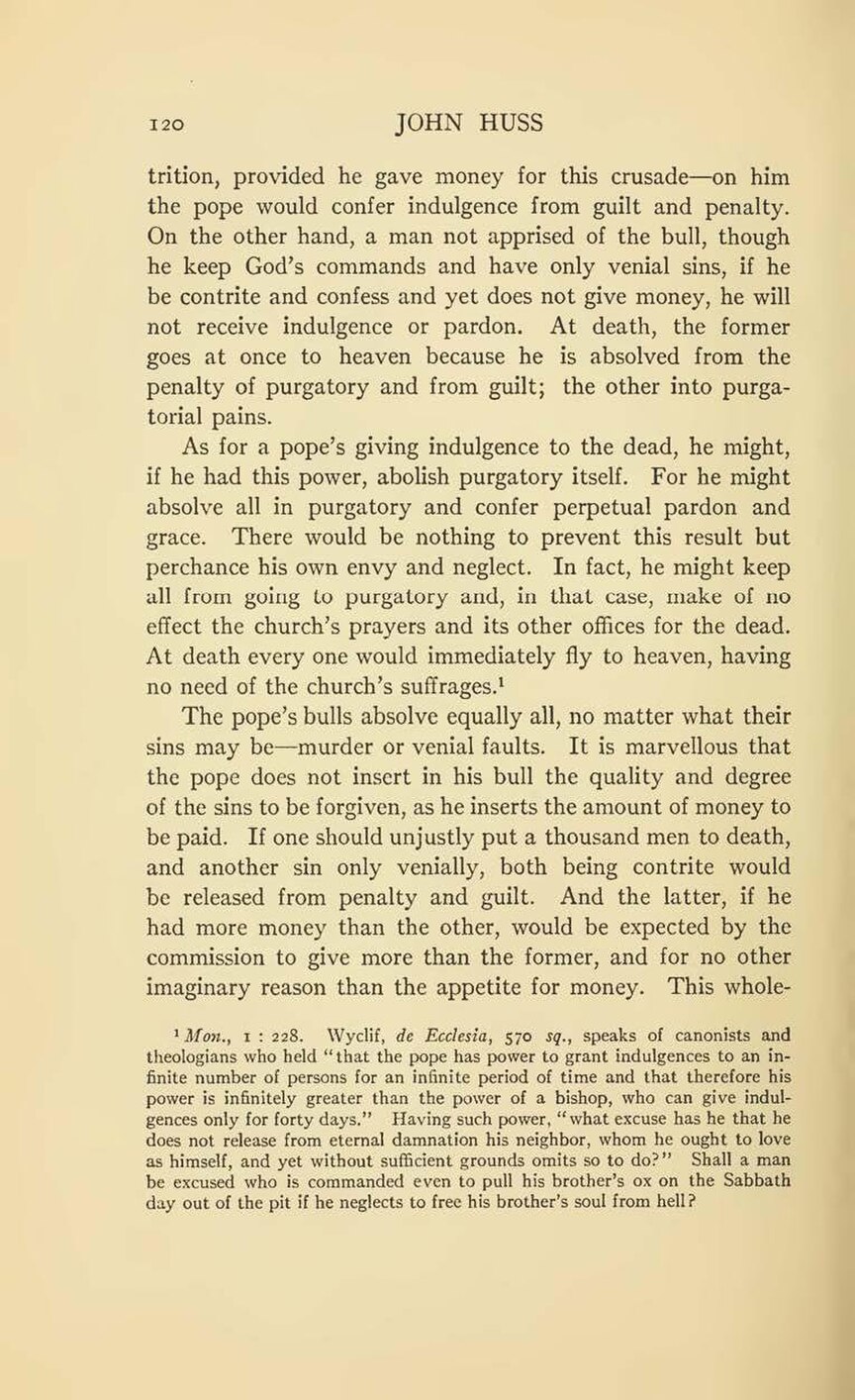trition, provided he gave money for this crusade—on him the pope would confer indulgence from guilt and penalty. On the other hand, a man not apprised of the bull, though he keep God’s commands and have only venial sins, if he be contrite and confess and yet does not give money, he will not receive indulgence or pardon. At death, the former goes at once to heaven because he is absolved from the penalty of purgatory and from guilt; the other into purgatorial pains.
As for a pope’s giving indulgence to the dead, he might, if he had this power, abolish purgatory itself. For he might absolve all in purgatory and confer perpetual pardon and grace. There would be nothing to prevent this result but perchance his own envy and neglect. In fact, he might keep all from going to purgatory and, in that case, make of no effect the church’s prayers and its other offices for the dead. At death every one would immediately fly to heaven, having no need of the church’s suffrages.[1]
The pope’s bulls absolve equally all, no matter what their sins may be—murder or venial faults. It is marvellous that the pope does not insert in his bull the quality and degree of the sins to be forgiven, as he inserts the amount of money to be paid. If one should unjustly put a thousand men to death, and another sin only venially, both being contrite would be released from penalty and guilt. And the latter, if he had more money than the other, would be expected by the commission to give more than the former, and for no other imaginary reason than the appetite for money. This whole-
- ↑ Mon., 1: 228. Wyclif, de Ecclesia, 570 sq., speaks of canonists and theologians who held “that the pope has power to grant indulgences to an infinite number of persons for an infinite period of time and that therefore his power is infinitely greater than the power of a bishop, who can give indulgences only for forty days.” Having such power, “what excuse has he that he does not release from eternal damnation his neighbor, whom he ought to love as himself, and yet without sufficient grounds omits so to do?” Shall a man be excused who is commanded even to pull his brother’s ox on the Sabbath day out of the pit if he neglects to free his brother’s soul from hell?
